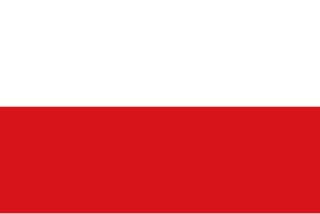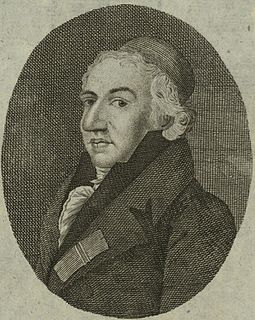
Zecharias Frankel, also known as Zacharias Frankel was a Bohemian-German rabbi and a historian who studied the historical development of Judaism. He was born in Prague and died in Breslau. Frankel was the founder and the most eminent member of the school of historical Judaism, which advocates freedom of research, while upholding the authority of traditional Jewish belief and practice. This school of thought was the intellectual progenitor of Conservative Judaism.

Jewish emancipation was the external process in various nations in Europe of eliminating Jewish disabilities, e.g. Jewish quotas, to which Jewish people were then subject, and the recognition of Jews as entitled to equality and citizenship rights. It included efforts within the community to integrate into their societies as citizens. It occurred gradually between the late 18th century and the early 20th century. Jewish emancipation followed the Age of Enlightenment and the concurrent Jewish enlightenment. Various nations repealed or superseded previous discriminatory laws applied specifically against Jews where they resided. Before the emancipation, most Jews were isolated in residential areas from the rest of the society; emancipation was a major goal of European Jews of that time, who worked within their communities to achieve integration in the majority societies and broader education. Many became active politically and culturally within wider European civil society as Jews gained full citizenship. They emigrated to countries offering better social and economic opportunities, such as the Russian Empire and France. Some European Jews turned to Socialism, and others to Jewish zionism.
Landesrabbiner are spiritual heads of the Jewish communities of a country, province, or district, particularly in Germany and Austria. The office is a result of the legal condition of the Jews in medieval times when the Jewish communities formed a unit for the purposes of taxation. As the community had to pay certain taxes to the government, the latter had to appoint some one who should be responsible to it for their prompt collection, and who consequently had to be invested with a certain authority. The office of Landesrabbiner had no ecclesiastical meaning until the 18th century, when the various governments began to consider it their duty to care for the spiritual welfare of the Jews. Such ecclesiastical authority, owing to the strictly congregational constitution of the communities, never took root among the Jews.
Jacob Bassevi von Treuenberg was a Bohemian Court Jew and financier. Bassevi, sometimes also written Baschevi, was a son of Avraham Basch who originated from Italy. Early in his life he specialized in trading with silver which was the main component of the coins and currencies at his time. He ultimately became very wealthy, and stood in high favor with the emperors Rudolph II, Matthias, and Ferdinand II, to whom he frequently rendered financial assistance, particularly to Ferdinand, who needed large sums of money for the prosecution of the Thirty Years' War (1618–1648).

Moritz Steinschneider was a Bohemian bibliographer and Orientalist. He received his early instruction in Hebrew from his father, Jacob Steinschneider, who was not only an expert Talmudist, but was also well versed in secular science. The house of the elder Steinschneider was the rendezvous of a few progressive Hebraists, among whom was his brother-in-law, the physician and writer Gideon Brecher.

The Lands of the Bohemian Crown, sometimes called Czech lands in modern times, were a number of incorporated states in Central Europe during the medieval and early modern periods connected by feudal relations under the Bohemian kings. The crown lands primarily consisted of the Kingdom of Bohemia, an electorate of the Holy Roman Empire according to the Golden Bull of 1356, the Margraviate of Moravia, the Duchies of Silesia, and the two Lusatias, known as the Margraviate of Upper Lusatia and the Margraviate of Lower Lusatia, as well as other territories throughout its history.
The Leibzoll was a special toll which Jews had to pay in most of the European states in the Middle Ages and up to the beginning of the nineteenth century.

David Friedländer was a German Jewish banker, writer and communal leader.
The history of the Jews in Austria probably begins with the exodus of Jews from Judea under Roman occupation. Over the course of many centuries, the political status of the community rose and fell many times: during certain periods, the Jewish community prospered and enjoyed political equality, and during other periods it suffered pogroms, deportations to concentration camps and mass murder, and antisemitism. The Holocaust drastically reduced the Jewish community in Austria and only 8,140 Jews remained in Austria according to the 2001 census, but other estimates place the current figure at 9,000, 15,000 and 20,000 people, if accounting for those of mixed descent.

Aryanization was the forced expulsion of Jews from business life in Nazi Germany, Axis-aligned states, and their occupied territories. It entailed the transfer of Jewish property into "Aryan" hands in order to "de-Jew the economy".
Nehemiah Hiyya ben Moses Hayyun was a Bosnian Kabalist. His parents, of Sephardic descent, lived in Sarajevo, Bosnia, where probably he was born, although in later life he pretended that he was a Palestinian emissary born in Safed. He received his Talmudic education in Hebron.

Abraham Neuda was an Austrian rabbi.
The history of the Jews in Laupheim began in the first half of the 18th century. Until the second half of the 19th century, the Jewish community in Laupheim, expanded continuously to become the largest of its kind in Württemberg. During this period, the Jewish community gradually assimilated to its Christian surroundings and its members prospered until the beginning of the Nazi-period in 1933. With the deportation of the last remaining Jews in 1942, more than 200 years of Jewish history in Laupheim forcibly came to an end.

Meyer Kayserling was a German rabbi and historian.

Herz Cerfbeer of Medelsheim was a French Jewish philanthropist. He was a contractor to the army, and employed his wealth and his influence with the French government in promoting the material and spiritual welfare of his coreligionists. The government permitted him to settle at Strasburg, in opposition to the wishes of the authorities of that city, who zealously enforced the law excluding Jews.

The history of the Jews in Regensburg, Germany reaches back over 1,000 years. The Jews of Regensburg are part of Bavarian Jewry; Regensburg was the capital of the Upper Palatinate and formerly a free city of the German empire. The great age of the Jewish community in this city is indicated by the tradition that a Jewish colony existed there before the common era; it is undoubtedly the oldest Jewish settlement in Bavaria of which any records exist.
Anti-miscegenation laws or miscegenation laws are laws that enforce racial segregation at the level of marriage and intimate relationships by criminalizing interracial marriage and sometimes also sex between members of different races. Such laws were first introduced in North America from the late seventeenth century onwards by several of the Thirteen Colonies, and subsequently by many US states and US territories and remained in force in many US states until 1967. After the Second World War, an increasing number of states repealed their anti-miscegenation laws. In 1967, in Loving v. Virginia, the remaining anti-miscegenation laws were held to be unconstitutional by the Supreme Court of the United States. Similar laws were also enforced in Nazi Germany as part of the Nuremberg laws, and in South Africa as part of the system of Apartheid. In the United States, interracial marriage, cohabitation and sex have been termed "miscegenation" since the term was coined in 1863. Contemporary usage of the term is less frequent, except to refer to historical laws banning the practice.
The history of the Jews in Tudela, Spain goes back well over one thousand years.

The history of the Jews in Hamburg in Germany, is recorded from at least 1590 on. The Jews of Hamburg have lived primarily in the Jewish neighbourhoods of Grindel and New Town, where the Sephardic Community„"Newe Shalom" was established in 1652. Since 1612 there have been toleration agreements with the senate of the prevailingly Lutheran city. Also Reformed Dutch merchants and Anglican Britons made similar agreements before. In these agreements the Jews were not permitted to live in the Inner-City, though were also not required to live in ghettos.

The Province of the Sudetenland was established on 29 October 1918 by former members of the Cisleithanian Imperial Council, the governing legislature of the crumbling Austro-Hungarian Empire. It consisted of German-speaking parts of Moravia, Bohemia and Austrian Silesia, and was meant to become an integral part of the newly proclaimed Republic of German Austria.


















